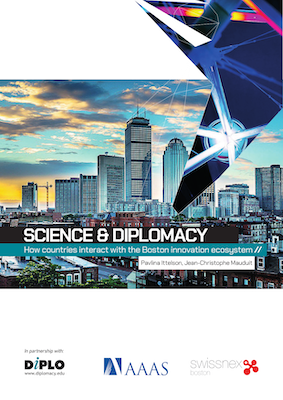Note: This article is a part of the publication ‘Science diplomacy capacity development: Reflections on Diplo’s 2021 course and the road ahead’
What is Science Diplomacy? This was the fundamental question I was hoping to answer, and then help answer for others, by volunteering to be part of this initiative. I’ve got some bad news because I still don’t have an answer, but this bad news is actually a good thing! In teaching complex subjects I feel that it is only natural that the teacher learns from reviewing and presenting the material and expands their understanding from there based on discussions and feedback from their students. In that sense this experience totally delivered!
Is Science Diplomacy how we apply diplomatic relationships to international scientific collaborations? Is it how scientific knowledge can be applied to international decision making? Is it how scientists themselves can serve as diplomatic actors outside the traditional diplomatic framework? Is it a context-dependent bit of all three? Something else entirely?
I think many folks would be frustrated by the lack of clarity here but if there is one major overlap between the scientific mindset and the diplomatic mindset, I think it has to be that both worldviews are trained to be comfortable with uncertainty and with context-dependent definitions of sensitive topics. How cool is that?!
I’m truly not being sarcastic here, as a scientist with some policy experience, it shouldn’t be surprising to me that in learning more about a given topic I also learn that the topic itself is far more complex than I may have realized before digging deeper (see the Dunning-Kruger effect for why this pretty much always happens when learning about a new topic and also why it is more or less impossible to avoid).
So, I came into this process hoping for answers, hoping to apply my time doing domestic science policy work to an international framework, and left with a new appreciation of the specific challenges faced by diplomats especially as they relate to issues of science and international collaboration. If only there was a species-level threat to our very existence that could serve as an ultimate and existential test of all of the definitions of Science Diplomacy presented above? Turns out there is! Good news, I guess?
While only explicitly addressed in goal 13 in the UN’s sustainable development goals, it becomes immediately obvious upon reviewing the other goals that tackling the global threat of climate change is essential to continuing life on earth as we know it, and addressing that threat will put Science Diplomacy front and center. It is only through a combination of sound science, effective scientific communication, and engaged diplomacy that leads to domestic policy action across a wide variety of stakeholders that we have any hope of tackling the life-threatening imbalance of carbon dioxide currently in our atmosphere because of unmitigated burning of long-sequestered fossil fuels since the industrial revolution. Sounds a bit hopeless, no? Not so! (We hope.)
The participants who took this course are the folks who are going to get that international component done if anyone can. I was thinking we were going to have a group of folks who needed a lot of help with the science basics as they developed their diplomatic skills but instead we had rock stars who really got it, spoke intelligently about every issue presented, and were able to make connections to the topics presented both to their home nations and abroad, showing even in the earliest stages that they had the makings of the exact kind of people we need to tackle the biggest scientific problems facing the international community and therefore the world. And maybe after that they can come up with a good working definition of ‘Science Diplomacy’ too, no big deal.








